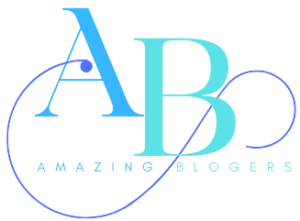Introduction : Wellhealthorganic.Com : How To Gain Muscle @ Well Health Organic
Building muscle is a goal shared by many fitness enthusiasts, athletes, and those simply looking to improve their physique and overall health. Gaining muscle involves more than just lifting weights; it requires a holistic approach that includes proper nutrition, effective training, and adequate recovery. This guide provides comprehensive strategies to help you build muscle efficiently and sustainably.
Understanding Muscle Growth
Muscle growth, or hypertrophy, occurs when muscle fibers are subjected to stress and then repair themselves, becoming larger and stronger in the process. This process involves two primary factors: mechanical tension and muscle damage. Mechanical tension is created by lifting heavy weights, while muscle damage occurs when the muscle fibers experience micro-tears during exercise. Adequate recovery and nutrition are crucial to repairing these fibers and promoting growth.
Effective Training Strategies
- Strength Training: Strength training is essential for muscle growth. Focus on compound exercises that work multiple muscle groups simultaneously. These exercises, such as squats, deadlifts, bench presses, and pull-ups, are effective in stimulating overall muscle development. Incorporate both free weights and resistance machines into your routine to maximize muscle engagement.
- Progressive Overload: To continue building muscle, you need to progressively increase the demands on your muscles. This concept, known as progressive overload, involves gradually increasing the weight, repetitions, or intensity of your workouts. By challenging your muscles with increasing loads, you encourage them to adapt and grow stronger.
- Varied Workouts: Avoid stagnation by varying your workout routines. Change exercises, adjust the order of your workouts, or try different training techniques such as supersets, drop sets, or pyramid sets. Variety helps prevent plateaus and keeps your workouts engaging.
- Proper Form and Technique: Using proper form and technique is crucial to prevent injuries and ensure effective muscle engagement. Focus on executing each exercise with controlled movements and avoid using excessive weights that compromise your form. If necessary, seek guidance from a certified personal trainer to learn the correct techniques.
- Training Frequency: Aim to work out each muscle group at least twice a week. This frequency allows for adequate stimulation while giving muscles time to recover. A common approach is to follow a split routine, where different muscle groups are targeted on different days, allowing for optimal recovery and growth.
Nutrition for Muscle Growth
- Adequate Protein Intake: Protein is the building block of muscle tissue, making it a vital component of your diet. Aim for a daily protein intake of 1.6 to 2.2 grams per kilogram of body weight. Include high-quality protein sources such as lean meats, poultry, fish, eggs, dairy products, legumes, and protein supplements if needed.
- Balanced Macronutrients: While protein is crucial, a balanced intake of carbohydrates and fats is also important. Carbohydrates provide energy for intense workouts and support muscle recovery. Include complex carbohydrates like whole grains, fruits, and vegetables in your diet. Healthy fats, such as those from avocados, nuts, and olive oil, support overall health and hormone production.
- Caloric Surplus: To gain muscle, you need to consume more calories than you expend. This caloric surplus provides the energy necessary for muscle growth and repair. Aim for a modest surplus of 250 to 500 calories per day to avoid excessive fat gain. Monitor your progress and adjust your caloric intake as needed.
importance of Muscle Building Tag
Muscle building plays a crucial role in various aspects of health, fitness, and overall well-being. Tagging or labeling content related to muscle building helps individuals find valuable information to enhance their fitness journey. Here’s why muscle building is important:
1. Physical Health
- Bone Health: Muscle building exercises increase bone density, reducing the risk of osteoporosis.
- Joint Support: Strong muscles support joints, enhancing stability and reducing the likelihood of injuries.
- Weight Management: Increased muscle mass boosts metabolism, aiding in weight control.
2. Mental Health
- Stress Reduction: Exercise releases endorphins, which improve mood and reduce stress.
- Confidence: Building muscle can improve body image and self-esteem.
- Cognitive Function: Physical exercise is linked to improved cognitive function and reduced risk of cognitive decline.
3. Functional Strength
- Daily Activities: Muscle strength improves performance in daily tasks, from lifting objects to climbing stairs.
- Athletic Performance: Athletes benefit from muscle building through enhanced performance and reduced injury risk.
By tagging content related to muscle building, individuals can easily access information that supports their health goals, enhancing their understanding of the numerous benefits and encouraging a healthier lifestyle.
benefits of Muscle Building
Building muscle provides numerous benefits for overall health, wellness, and functionality. Here are some key advantages:
- Improved Metabolism: Muscle tissue is metabolically active, which means it burns more calories at rest compared to fat tissue. This can help with weight management and reducing body fat.
- Enhanced Strength and Endurance: Increased muscle mass enhances physical strength and stamina, making daily activities easier and improving performance in sports and exercise.
- Better Bone Health: Resistance training and muscle building promote bone density, which helps in preventing osteoporosis and fractures, especially as one ages.
- Improved Joint Health: Strong muscles support and protect joints, reducing the risk of injuries and improving joint function.
- Enhanced Mental Health: Exercise, including strength training, releases endorphins that improve mood and reduce symptoms of anxiety and depression. It also improves cognitive function and self-esteem.
Building muscle, therefore, provides a wide range of physical, mental, and metabolic benefits that contribute to overall health and well-being.
Final Words
Building muscle is not just about aesthetics; it’s about enhancing health, strength, and well-being. By combining effective training, proper nutrition, and adequate rest, you can achieve remarkable results. The journey may have its challenges, but the rewards, ranging from improved physical health to boosted mental well-being, make the effort worthwhile. Stay consistent, avoid common pitfalls, and enjoy the process of becoming a stronger, healthier version of yourself. The WellHealth Muscle Building Tag is here to guide you every step of the way.


